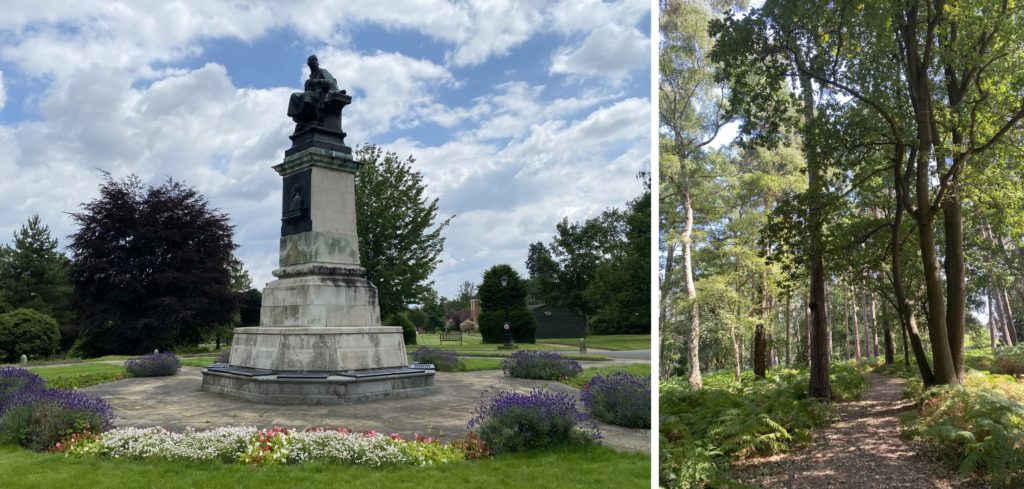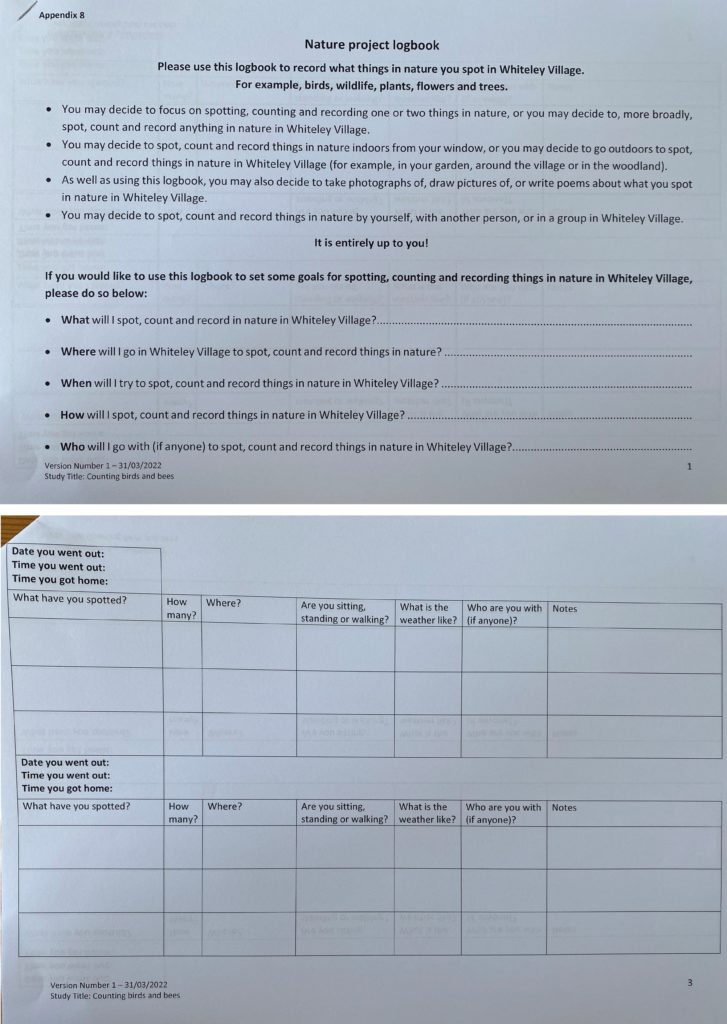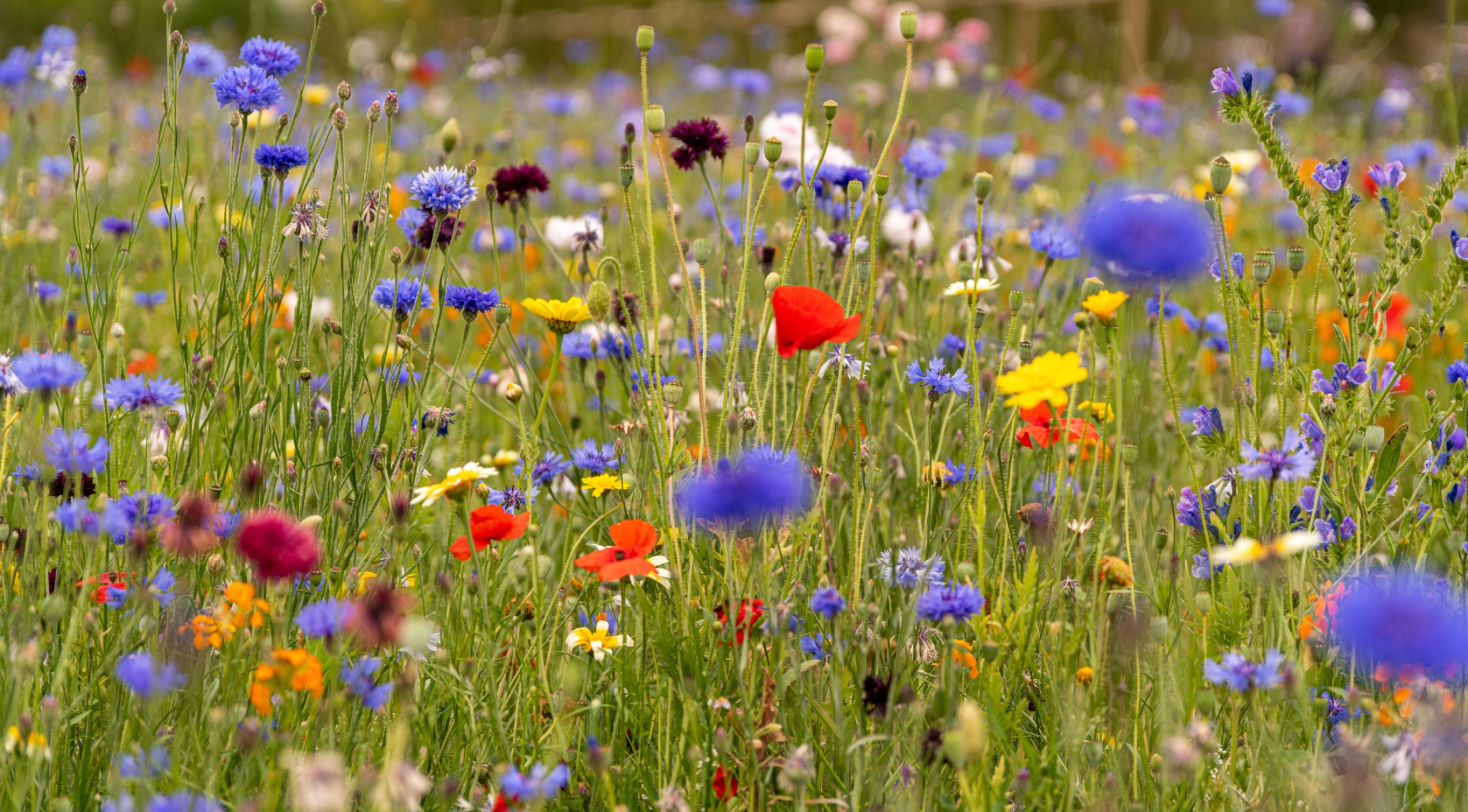
Published December 2022
Summary
There’s growing evidence that engaging with outdoor spaces promotes health and wellbeing across all ages. Yet as we get older, our changing abilities, motivations and means could prevent us from reaping the rewards of interacting with nature. Professor Birgitta Gatersleben and Dr Ciara O’Brien from the University of Surrey set out to co-design and test a nature-based conservation activity with residents at Whiteley Retirement Village, to see what works best for who, and to empower older people to enjoy the outdoors.
When there’s such beautiful landscape around them, how can we empower and support older people to get the most from it?
Prof. Birgitta Gatersleben, Principal Investigator
It’s well known that engaging with nature has health, wellbeing and social benefits. These benefits happen when we go outside into green spaces or even observe the great outdoors from the comfort of our homes, such as watching the activity around a bird feeder through a window.
However, when older people have nature on their doorstep it doesn’t necessarily mean they’ll have the motivation, ability or means to reap the benefits of interacting with it. And there’s been little research into what works best for different people, especially for those who live independently.
We’re investigating whether a nature-based conservation activity can encourage and motivate people to spend more time outdoors or enjoying nature in whatever ways they’re able to, and also testing whether this activity impacts their health and wellbeing.
To do this, we’re enlisting the help of Whiteley Retirement Village and its 500 residents. Located in Surrey, Whiteley Village boasts 225 acres of natural woodland, gardens and a pond. When there’s such beautiful landscape around them, how can we empower and support older people to get the most from it?

Tailoring activities to suit individual’s needs and abilities
From start to finish, we’re involving residents and village staff in this project. The co-design approach is essential because the activity we develop must be meaningful to residents, and relevant to the conservation of Whiteley Village.
Residents feeling motivated to take part in, and lead, nature-based activities will help to improve their health and wellbeing, which in turn helps the village as a whole
Dr Ciara O’Brien, Postdoctoral Research Fellow
First, we carried out interviews with a small number of residents who are already highly engaged with the outdoor parts of the village to understand differences in their motivations, needs and abilities.
Taking what we learned from these interviews, we designed and ran a workshop with more of the residents. They brainstormed and discussed ideas about what they could spot, count and record when out and about in the village woodlands and green spaces, and the resources they would need to take part in a nature-based conservation activity.
Together, we designed an activity that individuals could tailor for themselves. Residents can choose what they spot, count and record (anything from birds, insects and other animals to plant species) and where they see them (outside or through a window). They can also decide how best to capture this information, such as taking photos or writing a log, and whether they do it by themselves or with others.

Testing the benefits of counting birds and bees
Moving into the final stage of the project, we’re recruiting a cohort of residents to test the benefits of this nature activity. We’d like to get a mix of people taking part, including those who tend to stay close to home and those who are already venturing far and wide around the village.
Short questionnaires and interviews will be used to measure any changes in health, wellbeing, mood, cognitive function and sense of purpose in those taking part. We’ll also ask a small group to wear a motion tracking device known as an ActiGraph to measure their physical activity.
Our ultimate aim is to have residents take ownership of the activity, and continue to engage with nature after the project has finished. There’s already enthusiasm for starting a nature club and running seasonal activities all year round, for example mushroom spotting in autumn and counting butterflies in spring. The residents have also asked for more leaflets and resources to guide their learning about conservation, and they can also use the village magazine to share recommended walks and data on the species spotted.
Support through a tough time
It hasn’t been easy getting to this stage due to the significant disruptions caused by the COVID-19 pandemic. During the first six months, we couldn’t visit the village so we had to get to know staff and residents and build a rapport in other ways such as through phone calls. A key member of the team also tested positive for COVID on the day of our workshop!
The Dunhill Medical Trust has been wonderful and very understanding of our changing plans. Every time we reach out to the DMT team it feels like they’re on our side, encouraging us to achieve our goal of improving health and wellbeing for older people through engaging with the wonders of the natural world.

